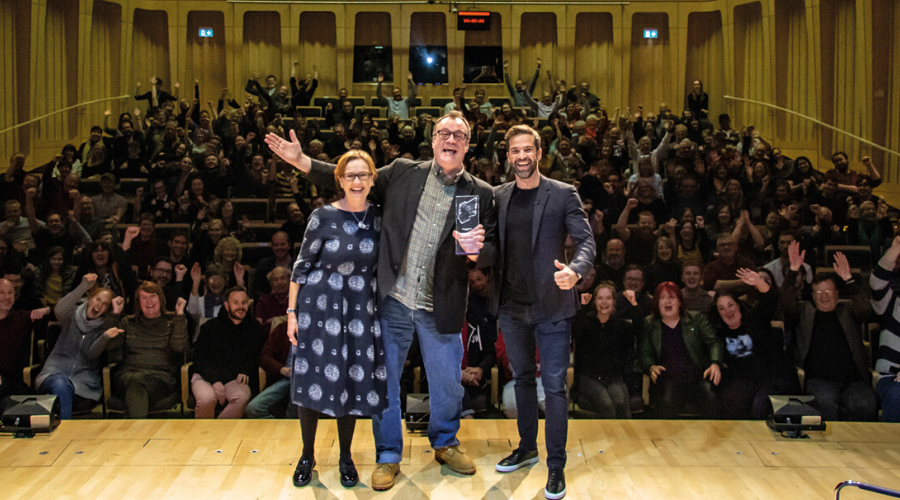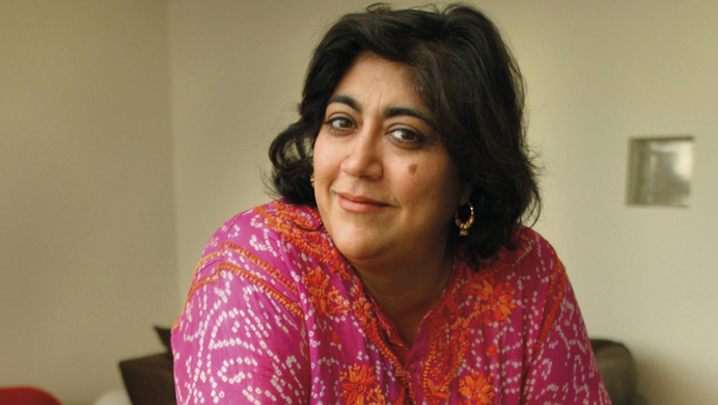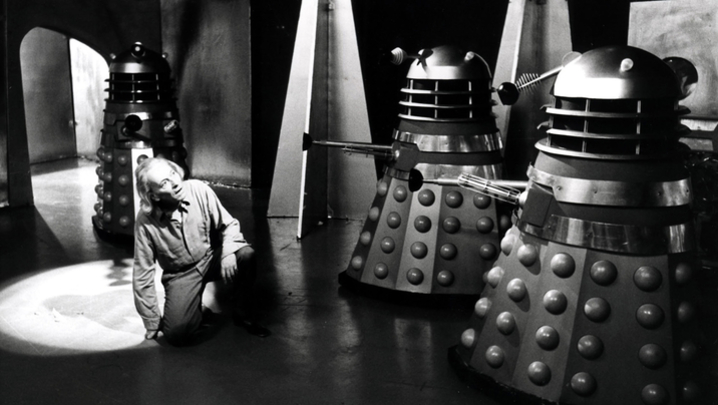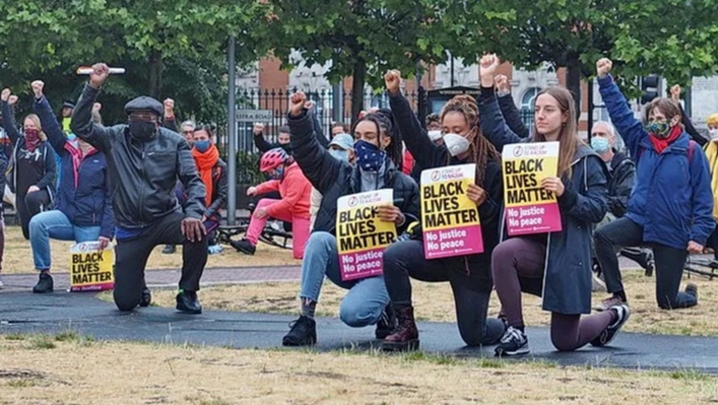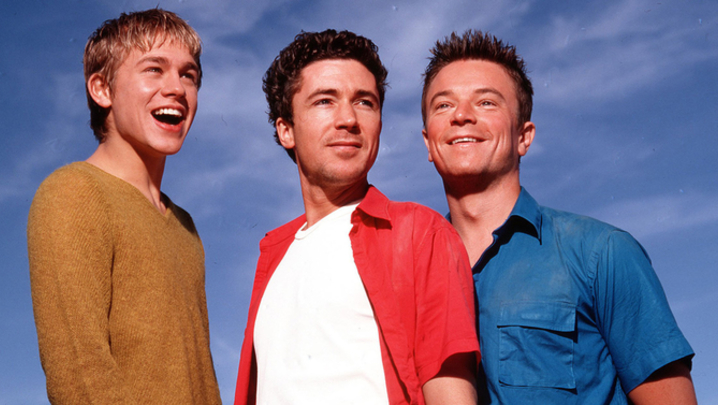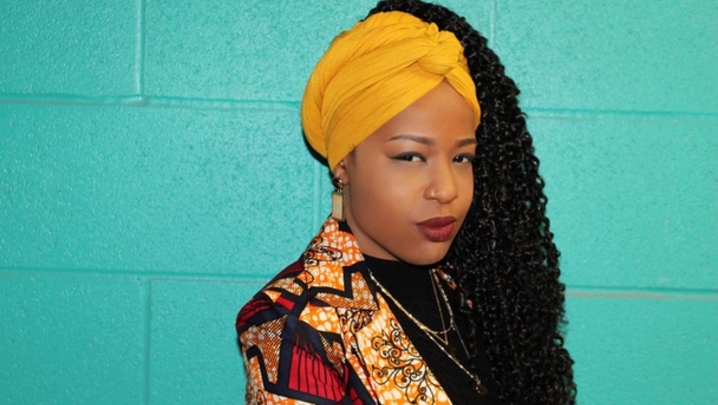Russell T Davies explains to Gethin Jones why TV still needs to get out of its straight, white rut. Matthew Bell has a front-row seat
In just 20 years, Russell T Davies has left an indelible mark on British television. From Queer as Folk, via Doctor Who, to this year’s dystopian chiller Years and Years, Davies has written unforgettable drama. His work – like the writer in person – is opinionated and loud, but also warm and human.
The Swansea-born writer was in expansive mood as he discussed his career with Gethin Jones at a sold-out event in late October at the Royal Welsh College of Music and Drama to mark the 60th anniversary of RTS Cymru Wales.
The TV broadcaster had first met Davies 15 years earlier when, as a Blue Peter presenter, he was running a Doctor Who monster competition. Jones went on to appear on the show twice himself, albeit as a couple of villainous extras – a Dalek and a Cyberman.
Davies told his compatriots that he grew up in “a very bookish house”, which boasted a full set of the Encyclopaedia Britannica. His parents were the “first in their families to go university”, he said, but added that they “revered television almost as much as they revered books”.
Davies was a talented artist – he turned down a job as a football cartoonist on the Sunday Sport – but settled on a career in television, moving to Manchester to work in the BBC’s children’s department. He tried his hand at directing, editing, dubbing and much else, recalling that, in children’s TV, “the budgets are small so you get thrown into these areas.… After a few years, you’ve learnt an awful lot more than you would if you were in a role as a One Show researcher.”
Davies produced children’s shows, including CITV’s Children’s Ward, before graduating to adult telly, storylining ITV’s Coronation Street and writing scripts for the same channel’s period soap The Grand.
His breakthrough came with the groundbreaking 1999 Channel 4 drama Queer as Folk, set in Manchester’s gay scene. TV had seen nothing like it before – an honest portrayal of the lives of young gay men, sex and all.
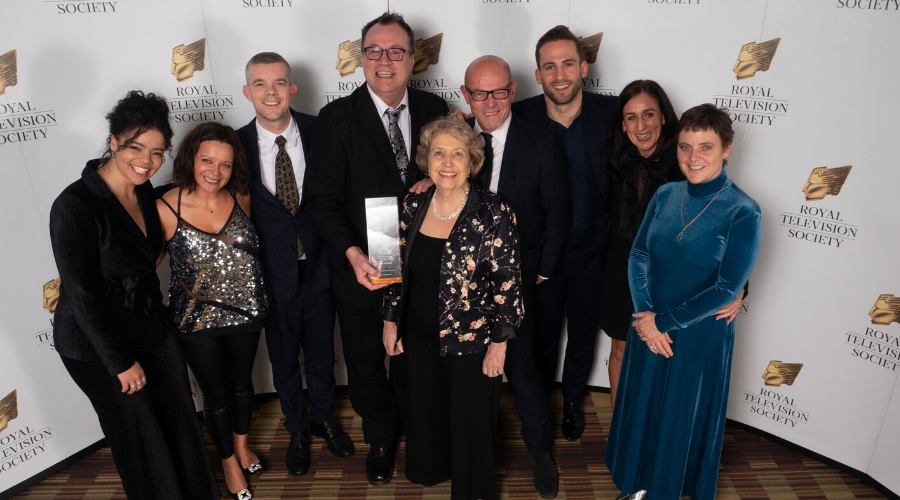
RTS North West Awards 2019
(Credit: Andrew F Photography)
“It was hard filming a gay drama on certain streets of Manchester,” said Davies. One scene near a pub in a rough part of town was particularly hairy: “They very much objected to a drama called Queer as Folk filming near them, so they attacked the crew with machetes.”
“Queer as Folk was a blast of life for me – it was the first time I’d been taken out of children’s [drama] and soap opera,” he added.
The success of Queer as Folk, with two more well-received series, Bob & Rose and The Second Coming, following in its wake, spawned a hugely successful and eclectic career, which has seen the writer move seamlessly between family (Doctor Who), children’s (The Sarah Jane Adventures) adult (Cucumber) and even period (Casanova) drama. Throughout, he has unapologetically chronicled the lives of gay people.
A boyhood fan of Doctor Who, Davies persuaded the BBC to regenerate the sci-fi series in 2003. Filming started the following year in Cardiff.
When the show aired in March 2005, with Davies as lead writer and executive producer, it proved a huge ratings and critical hit – and a shot in the arm for TV production in South Wales, especially when two spin-offs, Torchwood and The Sarah Jane Adventures, followed.
“I remember a time when a lot of my friends in the TV industry were struggling for work, and then Doctor Who happened and they worked for a long time. You brought the industry, that we have now, to Wales,” said Jones.
Davies’s much-garlanded 2018 drama for BBC One, A Very English Scandal, told the story of Liberal Party leader Jeremy Thorpe’s affair with Norman Scott and his attempt to murder him.
“It’s a story that had never been told by a gay man. It is from a very brilliant book by John Preston. The tone, wit and style of [the drama] is from the book – he’s a brilliant writer. But he is a straight man writing the story,” said Davies. “For 40 years, it has been a mystery why these men behaved as they [did]. Frankly, it’s the story of a middle-aged gay man falling in love with a beautiful gay man who takes too much drink and drugs. I understand that.”
Earlier this year, BBC One’s Years and Years offered a nightmare vision of a near-future Great Britain. “It wasn’t a ratings success, but I’m genuinely immensely proud of it,” said Davies. “I think it’s one of my favourite things in my whole career.”
Davies’s next project is Boys, a drama about Aids in the 1980s, which is set to air on Channel 4 next October. One of its stars, Welsh actor Callum Scott Howells, was in the hall.
Responding to a question from the audience on whether gay and transgender actors should be cast in gay
and transgender roles, Davies replied: “Right now, especially.” On Boys, he continued, there were “up to 40 or 45 gay characters, all played by gay actors.… I’ve cast trans people: Bethany Black, in Cucumber.
“I think television is astonishingly… white and straight – and straightforward, as well. It’s 2019 now, and you’ve got to get with it.”
The RTS Cymru Wales event ‘In conversation with Russell T Davies’ was held at the Royal Welsh College of Music and Drama in Cardiff on 28 October and produced by Edward Russell.
Davies on…
… The confidence to sell a drama
‘That’s a lifelong battle.… You have to summon up the nerve to go into a room to pitch to people. You don’t get any written treatments off me… but I can talk pretty well.… I will sit in a room and sell it. You have to – it’s my job.’
… Casting Welsh actors
‘As I get more power… I try to put Welsh characters into everything. When I was young, there were no Welsh characters on television at all, and that’s a fact. I remember my dad calling us in from the street when [Swansea-born actor] Margaret John was in an episode of Z Cars.’
… Writing for TV
‘When I was young, there were three channels, two soap operas and Casualty – and that was it. It was hard to be a writer then, frankly.… If you’re out of work as a writer and you’re not generating your own YouTube material, whether it’s sketches or dramas… then what are you doing? There are a million outlets now to find your expression in stuff. I know it’s still hard but it’s not as hard as it was.…
‘Read lots… the BBC Writers Room has thousands of scripts. Read film scripts, read plays, because that’s the way to learn how to do it.’

